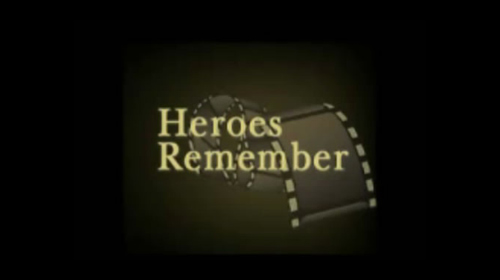Minenwerfers
First World War Audio Archive
Minenwerfers
Transcript
Hill 62 Memorial Belgium.
we could watch them coming and we could dodge them.Courtrai Memorial Belgium.
Sometimes they’d hit our trench, but we could watch them coming and we could step around the angle of the trench so as to avoidLe Quesnel Memorial Belgium.
being hit by them. One came over and hit our dugout which we usedGueudecourt Memorial France.
for a kitchen. It was just covered by sheet metal. And after theDury Memorial France.
shelling stopped at 4 o’clock, I thought, oh, we must getMonchy Memorial France.
something to eat because, of course, we had had no lunch.Passchendaele Memorial Belgium.
And I went to this dugout where the kitchen was and a shell had come through the corrugated iron roof and was sitting on theMasnières memorial France.
floor of the kitchen dugout. I didn’t feel like asking my men toBourion Wood Memorial France.
take it out. I knew the food was all in there. We couldn’t get any supper that night unless we got rid of it. So I thought,Courcelette Memorial France.
oh well, here goes, so I went in there and picked the thing up and I think it weighed about eighty pounds. It was about,Beaumont-Hamel Memorial France.
oh, 18 inches long, and perhaps four, five or six inches inSt. Julien Memorial Belgium.
diameter. I carried it out and down the trench, and took it up back of the line and laid it very gently in a shell hole.Canadian National Vimy Memorial France.
Description
Mr. Copp describes an unexploded German shell landing in their field kitchen. Feeling his men are too exhausted, he removes the danger himself.
John Percy Copp
John Percy Copp was born on February 2, 1889 at Baie Verte, New Brunswick. He enlisted in the 65th Battalion at Saskatoon. Shortly thereafter, in June, 1916 he went overseas to England, training for a very short time at Camp Bramshott. On August 10, 1916 he shipped to France as a member of B Company, 46th Battalion. Mr. Copp held the rank of Lieutenant and led his men in several major actions: Ypres, the Somme, Lens and Vimy. He was awarded the Military Cross by King George V at Buckingham Palace. His story is most compelling, for in it his concern for his men is the predominant theme. At the time of his interview, Mr. Copp lived in Lajolla, California.
Meta Data
- Medium:
- Video
- Owner:
- Veterans Affairs Canada
- Duration:
- 1:37
- Person Interviewed:
- John Percy Copp
- War, Conflict or Mission:
- First World War
- Location/Theatre:
- Europe
- Battle/Campaign:
- Ypres
- Branch:
- Army
- Units/Ship:
- 46th Battalion
- Rank:
- Lieutenant
- Occupation:
- Platoon Commander
Attestation
Related Videos
- Date modified:



